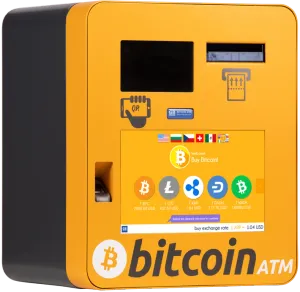However, some confusing instructions resulted in the owner sending the punk to the burn address, effectively destroying the NFT. "I was trying to wrap it and don't know what I was doing... Thought I was following the directions exactly..." they later wrote. They also later shared that they had borrowed money in order to purchase the CryptoPunk.
Collector accidentally burns their $123,000 CryptoPunk
US prosecutors file criminal charges against Do Kwon
The criminal charges out of the US add to civil charges he's facing from the SEC, as well as an investigation out of South Korea.
Terra/Luna founder Do Kwon arrested
After the collapse, Kwon became a fugitive. South Korea issued a warrant for his arrest in September, and Interpol issued a red notice. However, he's remained on the lam for some time, reportedly hiding in Serbia for a time — a country with no extradition agreement with South Korea.
Now, officials in Montenegro have announced they arrested Do Kwon, who was attempting to travel through the country using falsified documents. Montenegro is a Balkan country bordering Serbia.
Kraken to suspend ACH transfers after Silvergate collapse
SEC sends a Wells notice to Coinbase
According to Coinbase, the Wells notice related to "aspects of the company's exchange, our staking service Coinbase Earn, and Coinbase Wallet". It's not terribly surprising that the SEC might have Coinbase Earn in its crosshairs, as it has recently taken action against similar products, such as Kraken's staking service. In the wake of the action against Kraken, Coinbase seemed to try to pre-empt SEC arguments by sending an email to customers emphasizing things like "You earn rewards from the protocol, not Coinbase". It doesn't look like this has shifted the SEC's thoughts much, though.
This should be an interesting saga to watch, partly because Coinbase has expressed willingness in the past to go head to head with the SEC.
Lindsay Lohan, Jake Paul, and other celebrities charged for illegally touting Justin Sun's tokens
With the exception of Soulja Boy and Mahone, the celebrities paid a total of more than $400,000 in disgorgement, interest, and penalties to settle the charges without admitting or denying them.
Justin Sun charged with offering unregistered securities and market manipulation
Eight celebrities were also charged with violations of anti-touting law.
SpankPay payments service for sex workers shuts down
In a tweet announcing the shutdown, SpankPay reassured customers, "Rest assured your money is safe and we'll get it to you as soon as possible" — always a scary thing to hear from a crypto company.
It seems that only the payments processing side of the business is shutting down, with projects including SpankChain and SpankMatch continuing to operate.
General Bytes crypto ATMs exploited for over $1.6 million
In addition to standalone servers, General Bytes' cloud service was impacted, and the company announced that it would be permanently shuttering it. "It is theoretically (and practically) impossible to secure a system granting access to multiple operators at the same time where some of them are bad actors," wrote the company in their statement explaining the decision, apparently unaware that this is something software companies find themselves doing all the time.
This exploit was the second breach suffered by General Bytes this year, after hackers exploited a vulnerability in August 2022 that allowed them to steal customer funds. It's unknown how much was stolen in that attack. The company also patched multiple hardware and software issues in their ATMs in September 2021, after Kraken Security Labs discovered issues including poor security practices that would allow attackers to "walk up to an ATM and compromise it".
- "General Bytes Bitcoin ATMs hacked using zero-day, $1.5M stolen", BleepingComputer
- "Hackers steal crypto from Bitcoin ATMs by exploiting zero-day bug", BleepingComputer
- "Kraken Security Labs Identifies Vulnerabilities In Commonly Used Bitcoin ATM", Kraken Security Labs
Thousands lose money to iEarn Bot crypto scam
According to the BBC, dozens of high-profile individuals in Romania, including members of the government and academics, lost money to the scam after it was promoted by technology expert Gabriel Garais — who also says he lost money in the scheme.
iEarn Bot claims to be a US-based company, although its website is full of false information. The person named as the company's founder told the BBC he has nothing to do with the scheme, and companies and institutions listed as "strategic partners" say there is no such partnership.
The BBC identified one cryptocurrency wallet that received payments from around 13,000 others totaling nearly $1.3 million.









